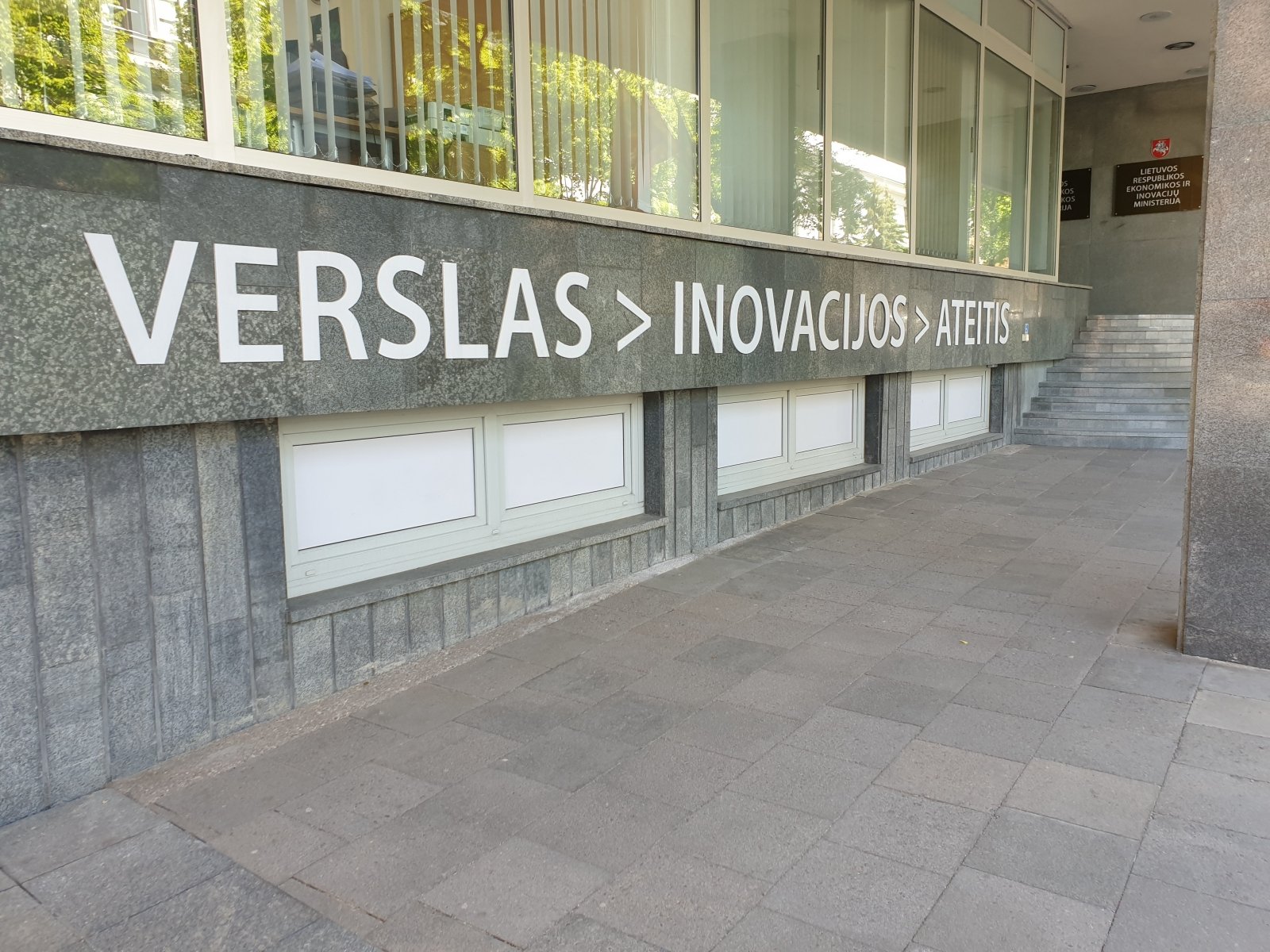
[ad_1]
Currently, only foreign companies that have subsidiaries registered in Lithuania have this right, but entrepreneurs talk about a couple of ways to cross the barrier and register a company with an English name.
The Minister of Economy Aušrinė Armonaitė, who presents amendments to the legal acts to the Seimas, points out that names in a foreign language can be registered in 21 of the 27 countries of the European Union (EU).
“When it comes to new opportunities to get companies out of quarantine restrictions, obviously we should tear down any barriers. This barrier is a great obstacle for those who want to do international business, whether to export or for emerging companies that, as we know, operate without borders ”, A. Armonaitė told BNS.
She argued that such barriers make life difficult for startups because their developers generally need to do everything themselves.
“These companies are usually created by people who do everything themselves, comply with all regulations, read the laws, register companies in registries. When there is such a bureaucratic burden, there is not much time and energy left to develop the same idea ”, says the Minister.
A. Armonaitė states that it has received complaints about this procedure from many companies, mostly start-ups.
“They (start-ups, BNS) often don’t need a lot from the state, they just need it so it doesn’t bother them,” he said.
Notaries or “Estonian Tourism”
Local entrepreneurs who have established companies in the country also share curious situations when trying to register company names in English or other foreign languages on social media.
According to them, there are now two ways to register a legal entity with an English name: the so-called “Estonian tourism”, when a company is registered, for example, in Estonia, and its subsidiary is opened in Lithuania. Such a company can register a name in English; it is considered a subsidiary of a foreign company in Lithuania.
The second way is to establish a company through a notary. Baltic Freya, a vertical farming start-up, took advantage of this gap by establishing the company in Lithuania almost two years ago.
“Because we are developing a product that focuses on a foreign market, we wanted an English name. But at that time, according to the law, we were able to establish a company with a Lithuanian or Latin name,” said Robertas Katinas, one of the founders of Baltic Freya.
“We only had to find a way to register the company with an English name, and after reading on the Internet, we found a loophole in the law, which we took advantage of: this is the establishment through a notary. So the name is not given to linguists to review and all, ”he said.
According to him, the creation of a company through a notary, using the services of intermediaries, costs about 300 euros.
“It just came to our notice then. But since we unofficially developed the idea of a good year, maybe more, we didn’t want to stop it, all the more because everyone already knew us as” Baltic Freya, “said R. Katin.
He said the idea for a vertical farming startup had been maturing for some time, but that a legal entity was needed after winning 10,000 in a tender. prize in euros.
“We participated in the contest of the European Institute of Innovation and Technology in Kaunas, we won first place and the prize was 10 thousand. euros. We had to pay GPM for that award because we did not have legal personality. It was very nefarious. We learned that if we had a legal entity, we would not have to pay for it, “said one of the founders of the start-up.
The amendments to the laws that came into force last year no longer require consultation with the State Lithuanian Language Commission (VLKK) on the compliance of the company name, but the legislation still establishes the requirement to register the names of the companies Lithuanians.
The Commission maintains that the names of companies, bodies, offices and agencies must be established in accordance with the rules of the common language and its regulations. Failure to comply with the instructions will lead to administrative sanctions for the direct managers of the companies.
It is not allowed to publish, quote or reproduce the information of the BNS news agency in the media and on websites without the written consent of the UAB “BNS”.
[ad_2]